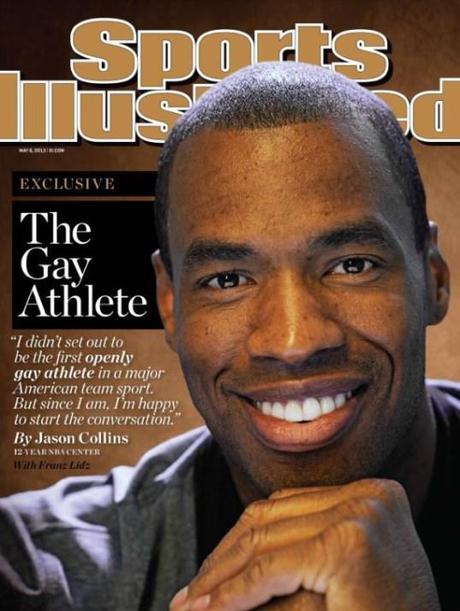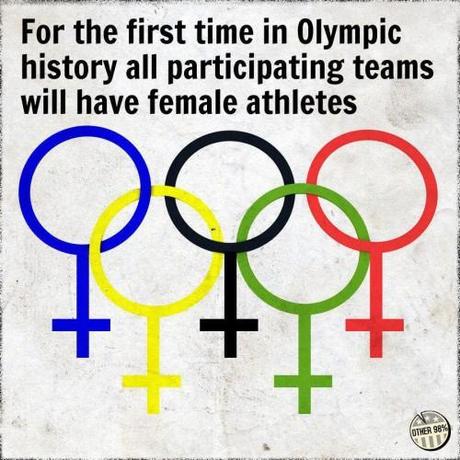“Hey fag, nice spandex”…I had just taken a drink of water, and hit the cross walk button at the intersection when I heard them yelling. At first, it didn’t even occur to me that they were yelling at me, until I turned around and saw a group of teenage boys yelling out the window and pointing at me. By the time I realized what was happening, the light had turned green and they were heading down the road and back out of my life. I started running again, and didn’t think too much of it at first. I’ve crafted a career around addressing issues of oppression and ignorance, and I read and study the subject on a daily basis. I engage others in discussion, and challenge long-held beliefs in the hope that I can help students think more critically about the world they live in. In other words, it is second nature to me to encounter this type of ignorance. However, rarely am I the target of homophobia, sexism, or any other form of oppression for that matter. My White, heterosexual male privilege means I am most often in a place to examine these societal ills from the outside looking in. This time, it was different. This time, I was the target.
As I ran further down the road, and began to think more about what happened, a variety of thoughts passed through my head. I can’t say in what order they came in, or where they came from, but I will say that they felt more a gut reaction than a logical train of thought. What would I have said to those boys if I had been given the chance? Would I have responded as an educator? Would I have felt the need to correct their misguided assumption about my sexual identity? Would I calmly point out their ignorance, or respond more angrily? Perhaps I would simply educate them on the benefits of compression wear in endurance sports. Well, that was probably the last thought on my mind, but I wished it had been further up the list. Ultimately, I was angry. I was angry at their ignorance, angry at a society that allows their brand of ignorance, angry at their parents for failing to educate them (an assumption on my part, of course), and angry at the thought of them repeating their actions with their peers, or others in the community. I may have the educational background and confidence, along with my privilege, to not internalize their comments. I might have the luxury to recognize their homophobic slurs for the ignorance they represent. However, many young people do not. How would a comment like that impact one of their peers, whether he was questioning his sexuality or not? Would it change his mind about running, or any other athletic activity?
In the past few years, there have been quite a few groundbreaking moments in (major league) athletics with regard to homophobia, sexism, and the comfort of athletics. More and more athletes have elected to disclose sexual orientation, both as a means of releasing themselves from the burden they carried, and as a means of supporting equity and equality in professional sports. Other athletes have become outspoken allies. For the most part, these decisions have been met with support, although there have been those that sought to criticize their lifestyle. I suppose bigots are equal-opportunity oppressors, right? It’s also a lot easier to spew homophobic remarks at someone online than it is to do so in person. The plethora of ignorant blogs and webpages maintained under the guise of free speech is proof positive of that.

This particular incident hit closer to home for me, though, and got me thinking more about how far we have actually come. Despite more and more professional athletes feeling comfortable coming out, athletics as a whole is still filled with homophobia, sexism, and gender stereotypes. For the most part, we may be comfortable with a professional basketball/football/baseball player coming out, as long as he still fits the gender stereotypes ascribed to professional male athletes. However, once you look past mainstream professional sports, the waters get a bit more murky. Are amateur athletes (think Olympic sports) given the same consideration when they come out? Does society respond as positively or with as much support? Do women feel as comfortable coming out as men in athletics? I would say no to all three questions.
Clearly, the intersections of race, sex, class, and capitalism are hard at work here. There is a clear hierarchy in sports. Professional sports, mainly (American) football, baseball, basketball, and hockey occupy a different space than amateur sports such as gymnastics, track and field, distance running, figure skating, swimming and soccer. Those athletes, with few exceptions, are men. Title IX is now 40 years old, and has done a great deal for leveling the playing field, but capitalism has determined the size of the stadium and the number of tickets sold. These four main professional sports bring in the highest revenue, have the highest players salaries, and offer the most prestige. Not coincidently, mainstream society seems more able to overlook a player coming out of the closet, as long as he is still performing on the court. This doesn’t mean our society is somehow more tolerance or less homophobic. It simply means the business of professional sports is wealthy enough to overshadow the ignorance. So where does that leave amateur athletes without multi-million dollar contracts? Where does that leave athletes preparing for the Olympics in Russia, where they are given the double message that their ability is welcome, but their identity is not?

Yep…it really took this long.
My mind was processing things at a rapid pace during the last few miles of my run. On top of all of this, I also found myself thinking about the choices young people make about which sports to become involved in. This is where those nasty gender stereotypes emerge even more completely. We begin sorting children into sports at an early age. Football, baseball, basketball, and hockey offer the clearest path to masculinity for young boys, and parents are eager to help their child punch that ticket. Now, please don’t misplace my critique for a disapproval of children playing sports. I think physical activity is key to a healthy lifestyle (clearly), and we should be doing even more to encourage activity as a means of curbing the out-of-control obesity rates in this country. Additionally, you’re not doubt thinking that young girls play all of these sports at an early age as well, and many of them continue their involvement through high school and even college. You’re quite right. However, the numbers most certainly don’t balance out, and retention provides an even more telling story. The media may love the story about the little girl who loves football and plays with the boys, and the NFL may pick it up and hold her up as a shining example of who knows what. Will she still be playing in ten years? How much media coverage is given to non-mainstream sports? Ultimately, in U.S. schools, athletics are central to masculinity, whereas they offer an optional identity for young girls (who of course need to be careful not to appear too masculine).
At this point, I’m guessing you are wondering when I’m going to get back to spandex, right? Well, here’s my full-circle moment. It’s not enough to be active or be athletic in the U.S. You still need to be the “right” kind of active and look the “right” way while you are doing it (see how capitalism sneaks back in?). If I had been wearing baggy shorts and a t-shirt, along with a pair of Nike shoes, those young boys wouldn’t have given me a second look. However, I didn’t fit their image of an athlete (plus they no doubt were unfamiliar with distance running), so I was targeted. Tight-fitting clothing is reserved for girls and women, unless of course its Nike or UnderArmor, and then capitalism trumps gender stereotypes.
Wrapped up in this discussion is the question of whether high school athletics should continue in their current stat at all. Young people spend a great deal of time on athletics, which is time they are not furthering their academic success as the U.S. struggles to keep pace with the rest of the world. More close to home, more and more parents are refusing to let their sons play football, especially, as the risks of head injury gain more and more attention. That, however, is a topic for another post.
When I headed out for my afternoon run, I had no idea that I’d end up contemplating the intersection of homophobia, sexism, and athletics. This discussion is, of course, just the tip of the iceberg. There is much more to interrogate with regard to my own positionality, my athletic history, and my privilege. Perhaps I’ll get a chance to have that conversation with those young men sometime in the future as well. Consider the invitation extended. What do you think? Let’s keep the conversation going!
